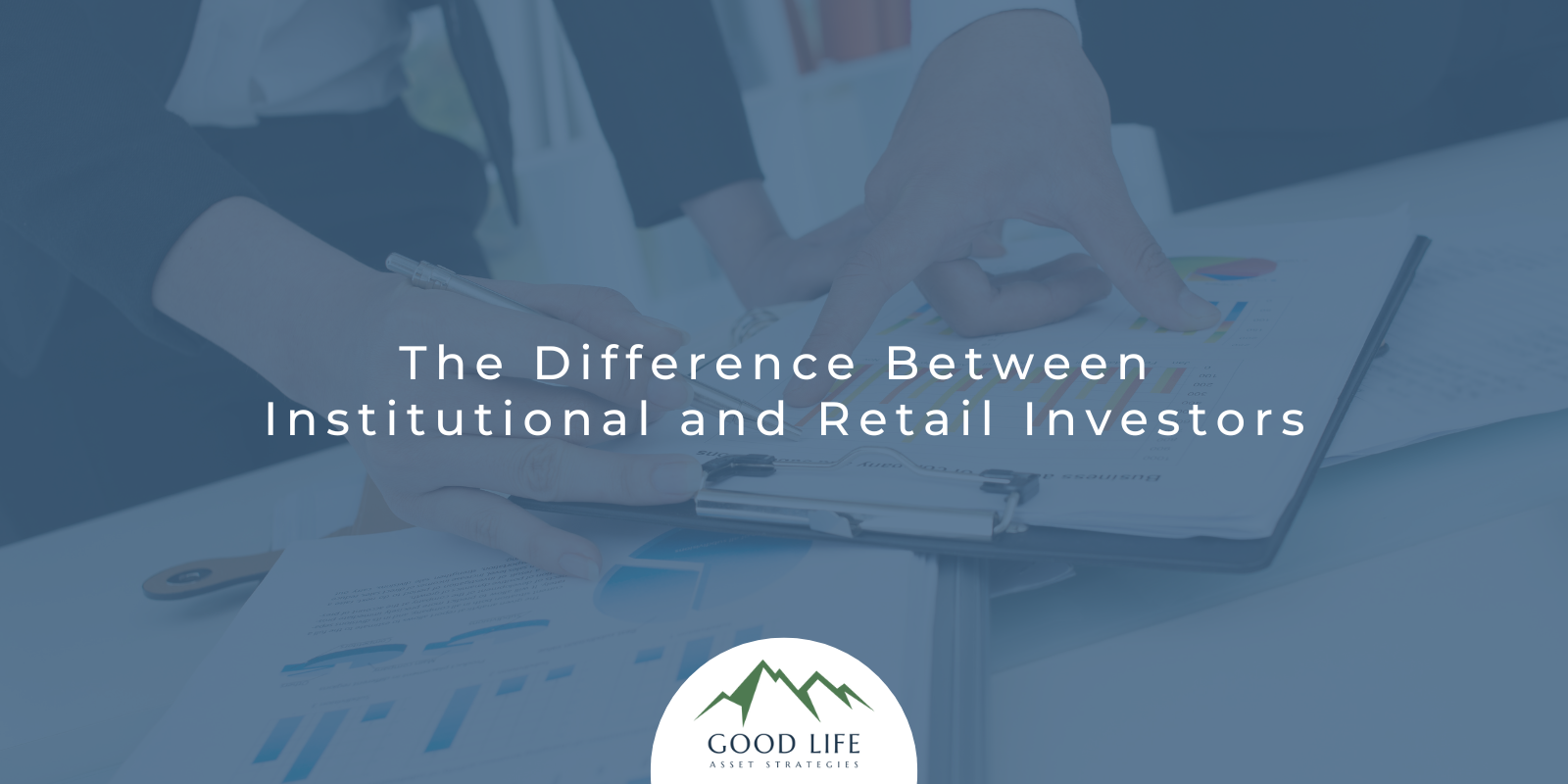- 817-864-8560
- justin@g-las.com
- Mon - Fri: 9:00am - 5:00pm

Welcome to the second edition of our series on the lingo used by financial advisors and investment professionals. Now that you understand the basic meanings of investing and trading and how they differ, let’s introduce the two main types of industry professionals: institutional and retail investors.
An institutional investor is a company or organization with employees who invest on behalf of others (typically other individuals, companies, or organizations). The more widely known institutional investors are banks, insurance companies, money managers (like us), mutual funds, hedge funds, commercial trusts, and endowments.
A retail investor, on the other hand, is an individual who uses their own money to invest through an online brokerage firm, like Schwab or TD Ameritrade. A trust, partnership, or corporation can substitute for an individual, but they are do-it-yourself all the way, investing their own funds on their behalf.
If you’re reading this, odds are you’re a retail investor. And that’s great. Just know that deep down the institutional investment community doesn’t think very highly of you. They don’t hate you. They just don’t respect you. They think you lack the expertise and experience to run with the big dogs, and that you should leave the investing and the managing of your money to them. In fact, institutional investors typically refer to themselves as the “smart money,” inferring you aren’t.
Don’t take it personally. They’ll never say it out loud unless they’ve had a couple too many. But make no mistake, they’re thinking it.
Now just because institutional investors pin this smart money medal on themselves doesn’t mean they are smart in all things investments. The “smart money” has made some of the biggest blunders of all time. An example is the global financial crisis of 2007 when several large banks went bye-bye and just about all the rest had to be bailed out by Uncle Sam (ultimately you). A benefit of smart money failures is they are open to the public for everyone to see, which affords the retail investor the opportunity to learn from smartie pants’ mistakes.
If you’re a retail investor, you need to quickly learn that investing is a zero-sum game. For every winner, there’s a loser. It’s serious business, and institutional investors play for keeps. Here are two important things you need to know about institutional investors.
Institutional investors will use their size, knowledge, and influence to attempt to legally take enough of your money to force you to eventually come begging for their forgiveness for even attempting to invest on your own, and pleading with them to manage your money for you.
Don’t get us wrong. You have every opportunity in the world to make lots of money investing yourself. But you can also lose lots of money. Eyes wide open…
At Good Life, we take our fiduciary responsibilities very seriously, acting on your behalf and always in your best interest. Feel free to reach out to us to discuss all things financial.
Check back next month to learn more industry terminology to help you learn the lingo of sophisticated investors and financial industry professionals. Next time we’ll introduce you to active and passive investing.
The views expressed represent the opinion of Good Life Asset Strategies, LLC. The views are subject to change and are not intended as a forecast or guarantee of future results. This material is for informational purposes only. It does not constitute investment advice and is not intended as an endorsement of any specific investment. Stated information is derived from proprietary and nonproprietary sources that have not been independently verified for accuracy or completeness.
Good Life Asset Strategies, LLC is a registered investment advisor located in Fort Worth, Texas. Good Life Asset Strategies, LLC and its representatives are in compliance with the current registration and notice filing requirements imposed upon registered investment advisors by those states within which the firm maintains clients.
All information herein has been prepared solely for informational purposes, and it is not an offer to buy or sell, or a solicitation of an offer to buy or sell any security or instrument or to participate in any particular trading strategy. Such an offer can only be made in the states that Good Life Asset Strategies, LLC is either registered or a notice filer or an exemption from registration is available under the securities laws or other laws.
Certified Financial Planner Board of Standards, Inc. (CFP Board) owns the CFP® certification mark, the CERTIFIED FINANCIAL PLANNER™ certification mark, and the CFP® certification mark (with plaque design) logo in the United States, which it authorizes use of by individuals who successfully complete CFP Board’s initial and ongoing certification requirements.